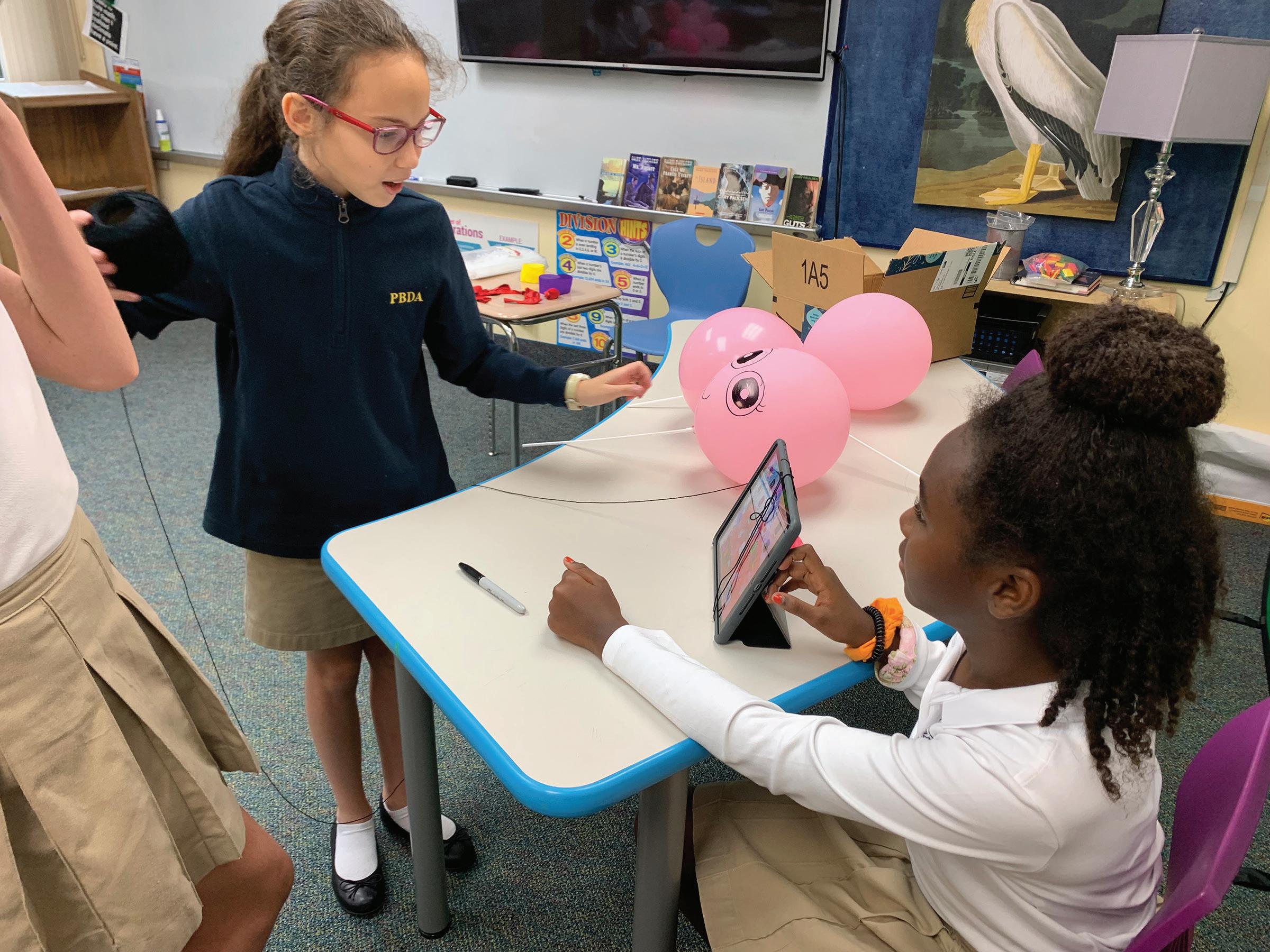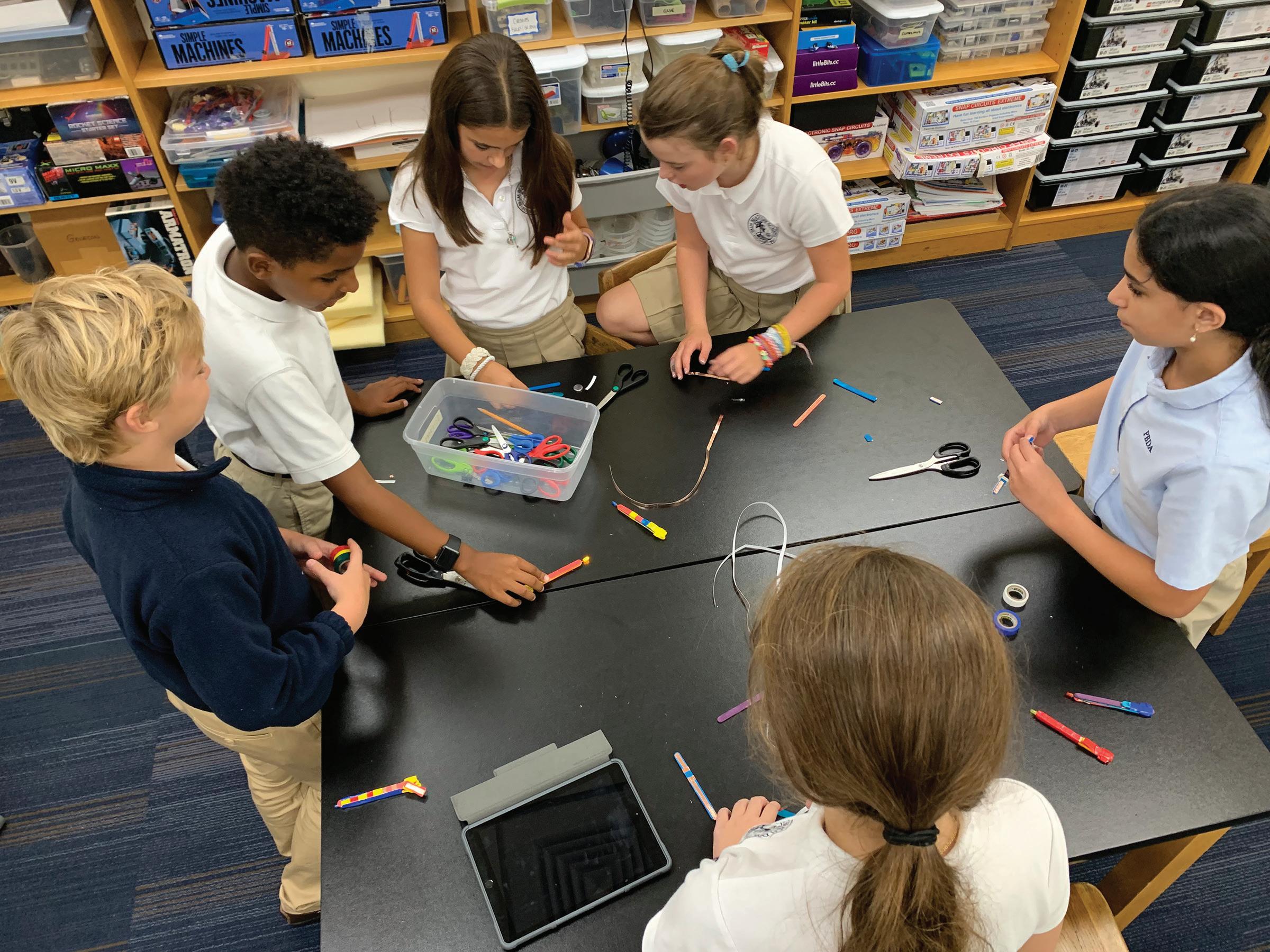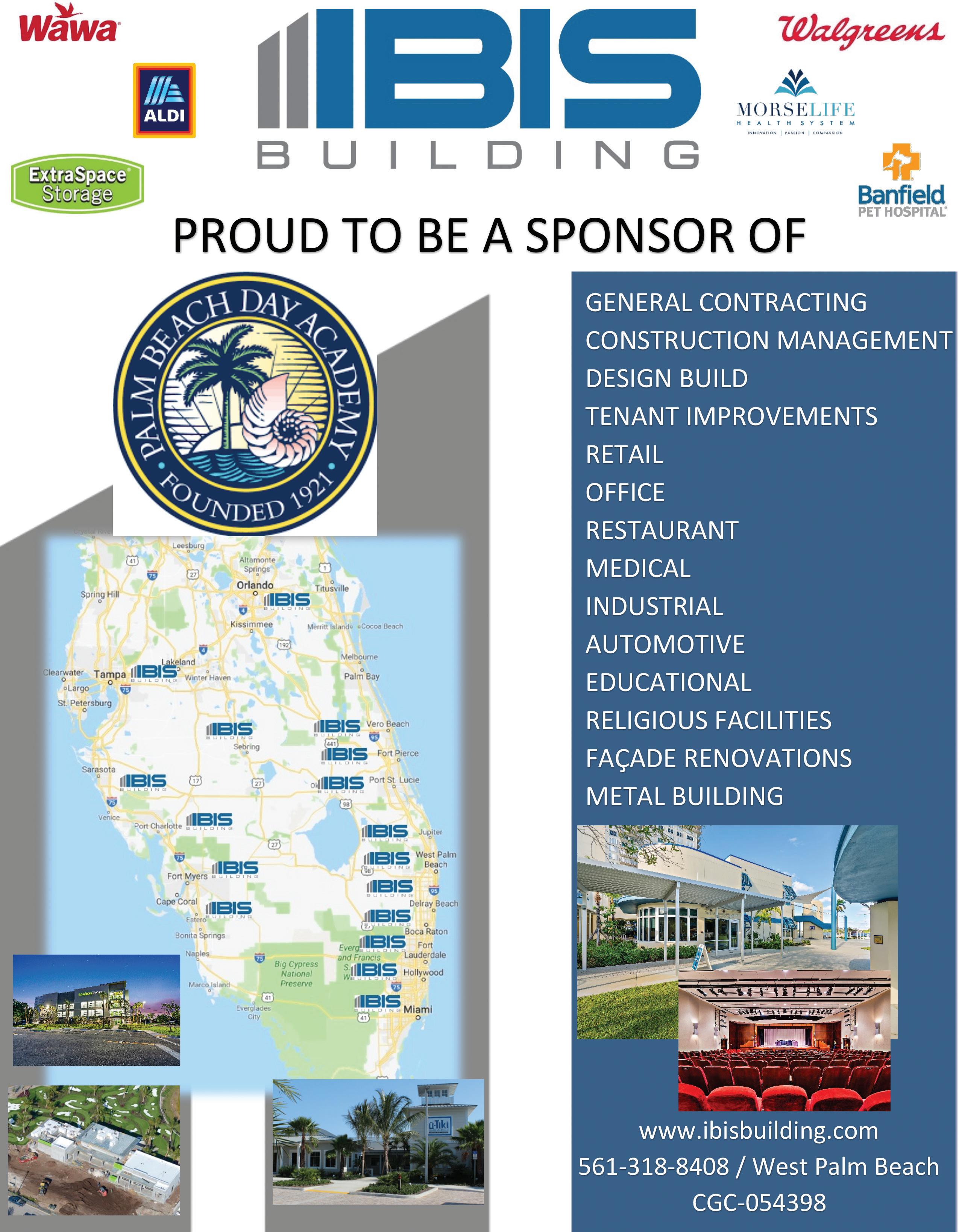
13 minute read
Alumni Notes .......................................................................................................... page 10
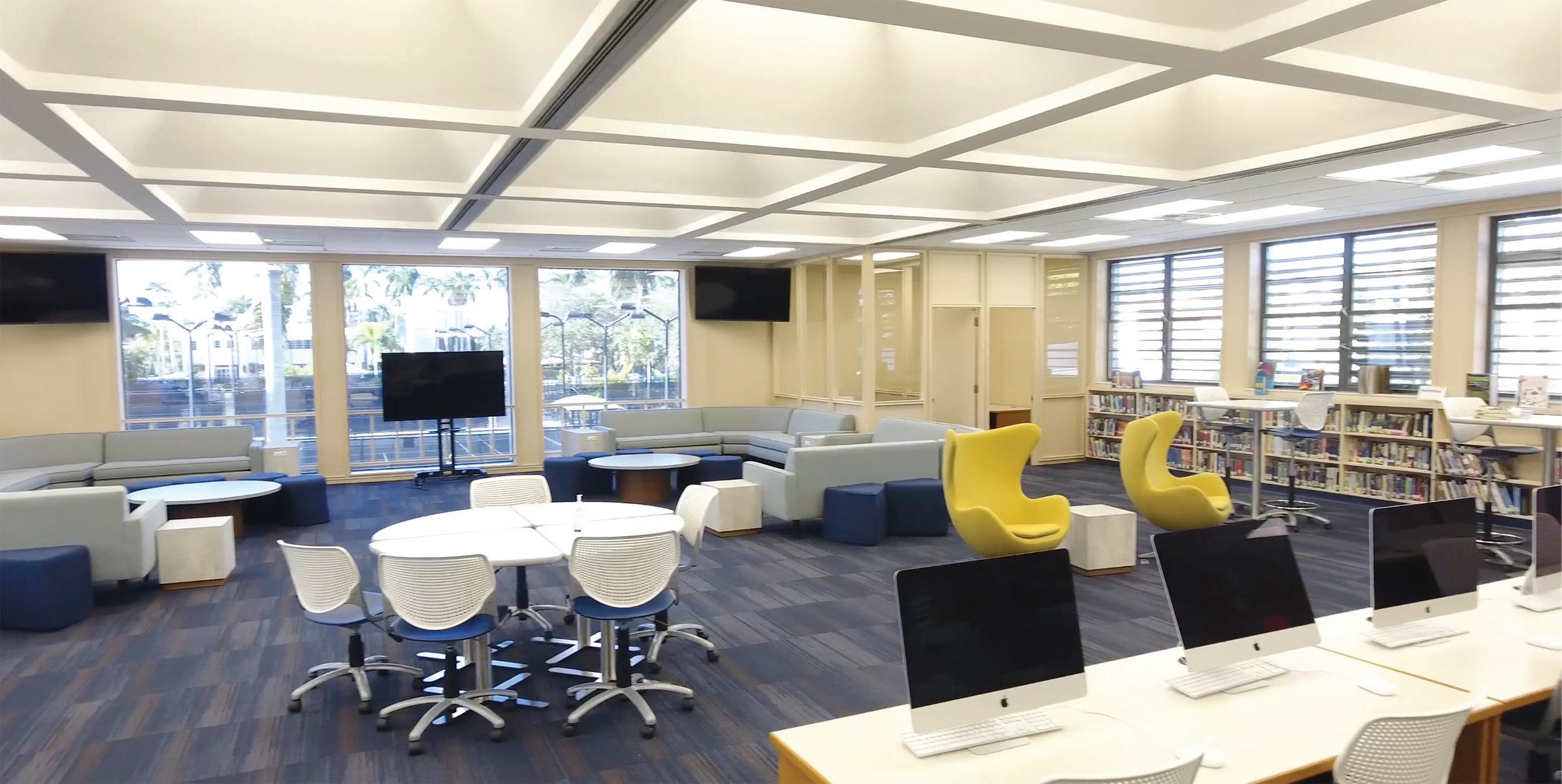
Raymond J. Wean Library - Renovated!
“Design is not just what it looks like and feels like. Design is how it works.” –Steve Jobs
Sarah Kemeness, Head of Upper School
In April, 2019, a committee consisting of board members, teachers and administrators met in the Wean Library to discuss the current use and condition of the space. With an “if we build it, they will come” mindset, the Wean Library was renovated and in late September, Palm Beach Day Academy’s fourth grade students were invited to “re-open” the library doors.
Research included visiting local school libraries, and Google searching school libraries all over the country. What PBDA was in search of was a space that allowed for a stronger culture of reading, a place to work collaboratively, and a meeting place for our students and faculty.
What was most important was the advice from our current students. They wanted a space that felt as comfortable as their study spaces at home – a cozy corner in their living room, a couch where projects were discussed, or a space to lounge and read a book. So, for the next few months, the administration (with the help of Chad Renfro, designer and friend of PBDA) sought after furniture, carpet colors, and wood shades that would feel similar to the students’ home workspaces.
Due to the efforts of Lower School Librarian Jen Andreon, library book circulation has increased; Mrs. Andreon has rebuilt the school’s library collection so the students have more authors from which to choose.
A space that hosted study halls and wheel classes for our upper elementary school students has turned into the new morning hangout. Students arrive early enough to spend twenty to thirty minutes in the library to chat with classmates, review for an upcoming assessment, work on a jigsaw puzzle, or have a quick game of BananaGrams before first period.
The conference room, with floor to ceiling glass, was designed with the students in mind. The space, which includes a 12-foot long table, a sink and write-able glass walls, allows students to work collaboratively without disturbing the rest of the library. Now, this room is used for National Junior Honor Society meetings and after-school tutoring, secondary school admissions visits, and for some of our faculty, who want a change of scenery.
While the four oversized yellow chairs are the most sought-after seats, especially for those students defending their chess champion status, the high tops allow our older students to get a taste of life outside of elementary school sized furniture.
The entire sixth grade uses the library for their last period. The high-top tables, the two quiet rooms, the conference room, the couches and the computer lab tables allow for all students to have a space to work. As well, the sixth-grade teachers, who work with their students during this time, enjoy this end-of-day tutoring in a space filled with tremendous light coming in off Seaview Avenue.
A focal point during Admissions tours and a delight for our alumni, The Wean Library is not just a space filled with funky chairs and comfortable ottomans. While the furniture is sort of spectacular in the minds of a middle schooler, what is being produced in this space is what matters.

PBDA’s Centennial Year - 2020-2021
Palm Beach Day Academy will begin its 100th year on August 31, 2020. For ninety-nine years, this grand Palm Beach institution has warmly welcomed and guided generation after generation of children and their families as a century of history has come and gone outside her doors. More than 20,000 school days have started with the sun over the ocean and ended with the last ride home from a well-played game. With a few days off for an occasional hurricane, and now even a months-long pandemic pause, Palm Beach Day Academy has remained a perennial home to those fortunate enough to join her family. Those children, their teachers and their parents – many long grown, some even gone, others just starting – are the story of this grand old school. During this Centennial year, we will honor them all; the founders, the children, the teachers, the visionaries and benefactors – everyone whose determination and dedication has carried our school through its first 100 years.
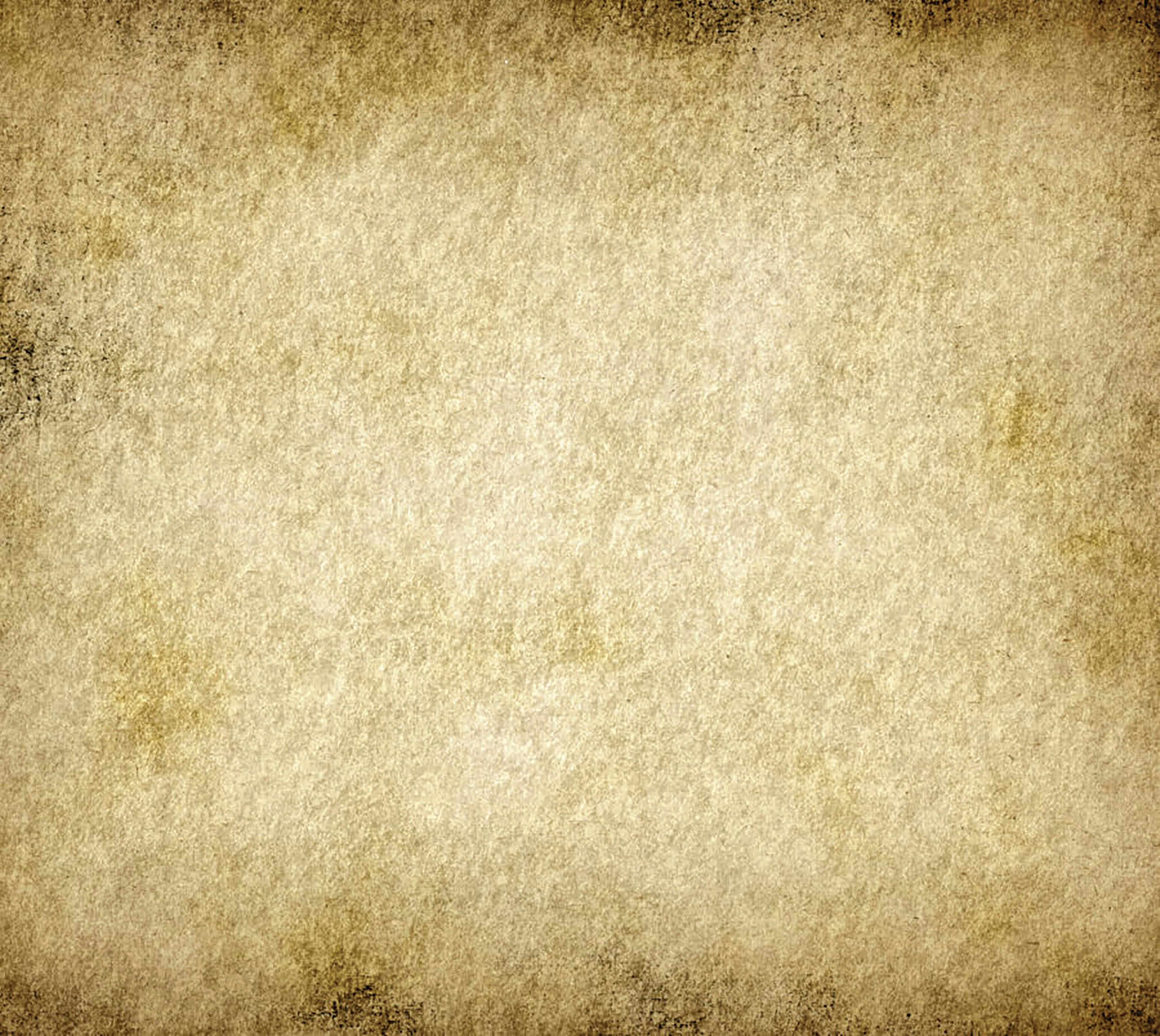
Palm Beach Day has a rich and vibrant history. While Henry Flagler was making Palm Beach an opulent paradise at the turn of the century, the sunshine, ocean waters and social life continued to draw the wealthy families from the midwest and the northeast. They came with trunks of clothes, tennis racquets, golf clubs, and their books. Forward thinking educators founded a boys school and a girls school in 1921 to serve the families during the season from Thanksgiving to George Washington’s birthday. Understanding the need for a co-educational school, a small group of philanthropic parents, whose names are associated with the growth of the town, founded the Palm Beach Private School in 1931, merging the Palm Beach School for Boys and the Palm Beach School for Girls. With exemplary leadership and financial support, this original board of trustees led the school through the Depression and World War II, eventually turning over ownership of the school to the families who attended the school. In the succeeding decades, the school responded to social, cultural, and economic changes by lengthening the school year, adding electives, expanding and upgrading the Palm Beach campus and eventually merging with the Academy of the Palm Beaches to accommodate an expanding student body. Through this history of change, the tradition of academic, athletic, and artistic excellence has remained the same.
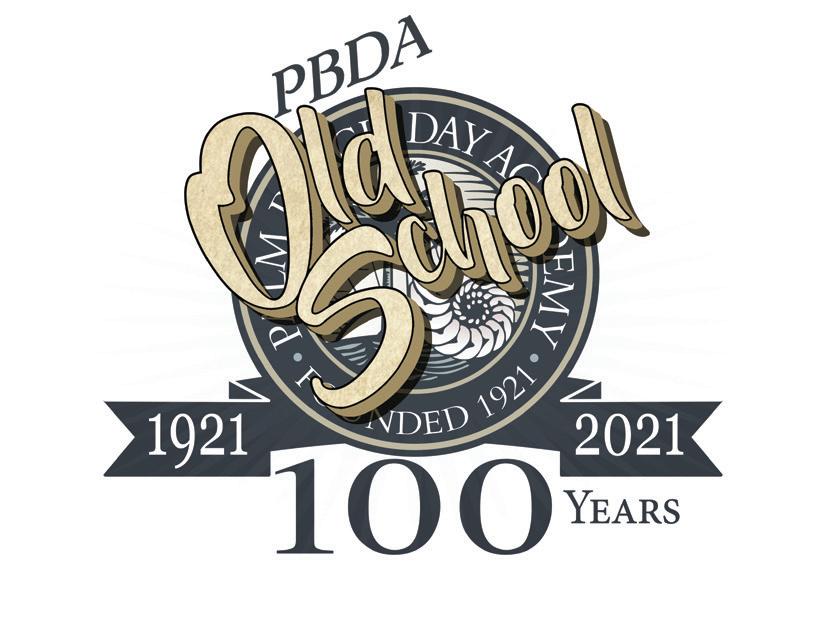
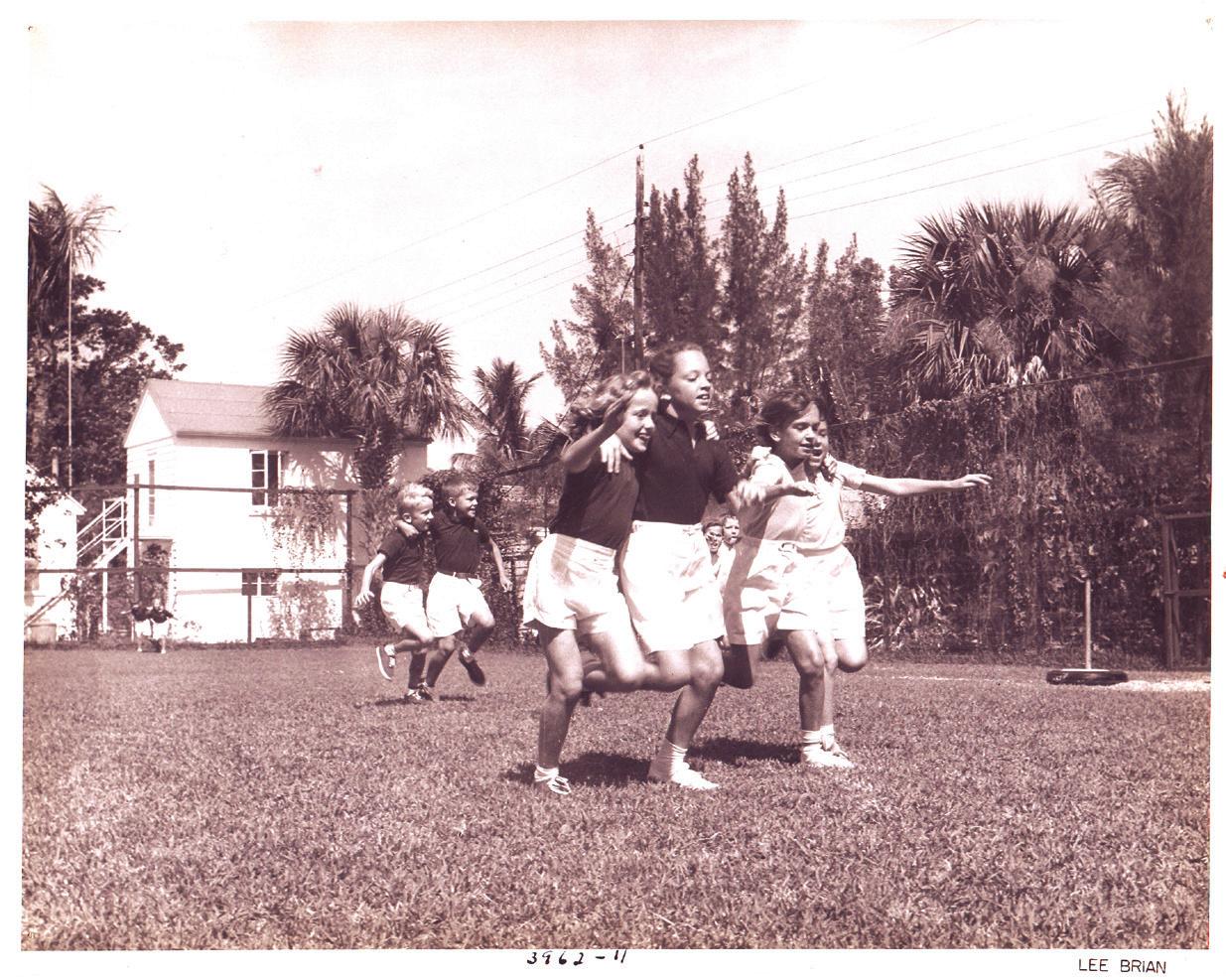
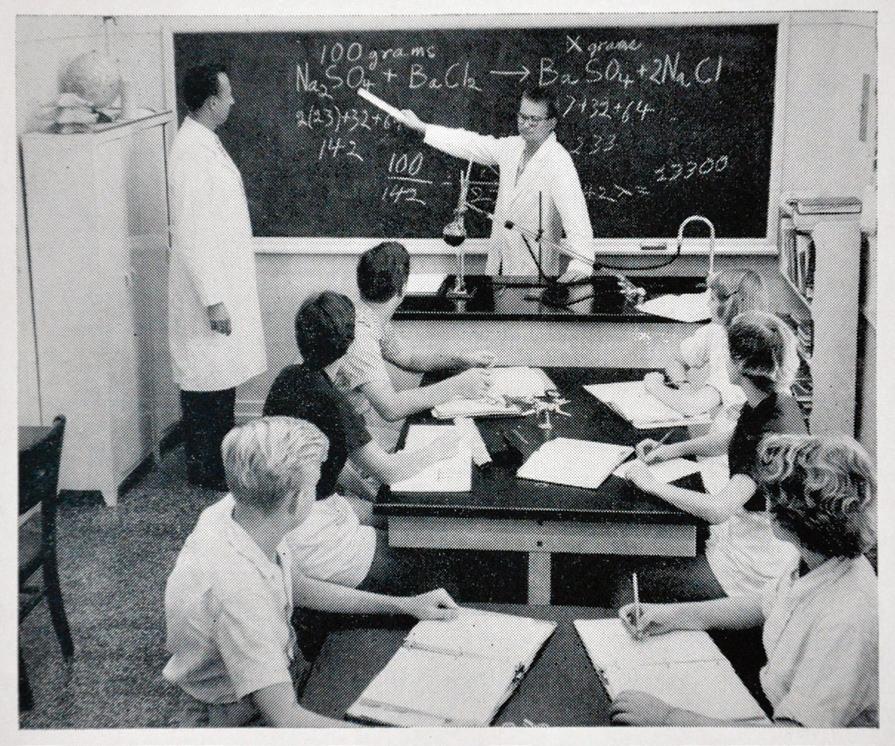
For the past year, a Centennial Committee has been planning an array of celebration events. The Committee is co-chaired by Missy Robinson Savage ’83 and Barbara Bayless Close ‘67. Committee members include Adrienne Carson Arp ’92, Christina Matthews Macfarland ’98, Anne Metzger, Lyanne Azqueta ‘84, Jim Gramentine, Caroline Koons Forrest ’92, Fanning Hearon, Grant Mashek ’95, and Fritz Van Der Grift ‘03.
Plans include a Kick-off party in the fall, an Evening with Ralph Greco, monthly podcast series entitled Old School which will highlight stories from alumni, a monthly blog detailing the rich history of PBDA by Hilary Beesch Mendoza ’71, an Alumni Speaker Series on both campuses, a schoolwide Centennial Flag Design Contest, a Centennial Day Celebration on the 100th day of our 100th year where we will celebrate the history of our fascinating school, a Centennial “100” Fun Run, an extra special Field Day, and a Centennial Gala in the spring.
We are so excited to celebrate 100 years as a school. We look forward to reconnecting with all people who have created our amazing history… alumni, teachers, parents, and friends. Here is a link to input your information. pbday.org/support-pbda/
alumni/class-notes-and-updated-info
Feel free to reach out to us! Missy at missysavage@gmail.com and Barbara at
bclose@pbday.org.
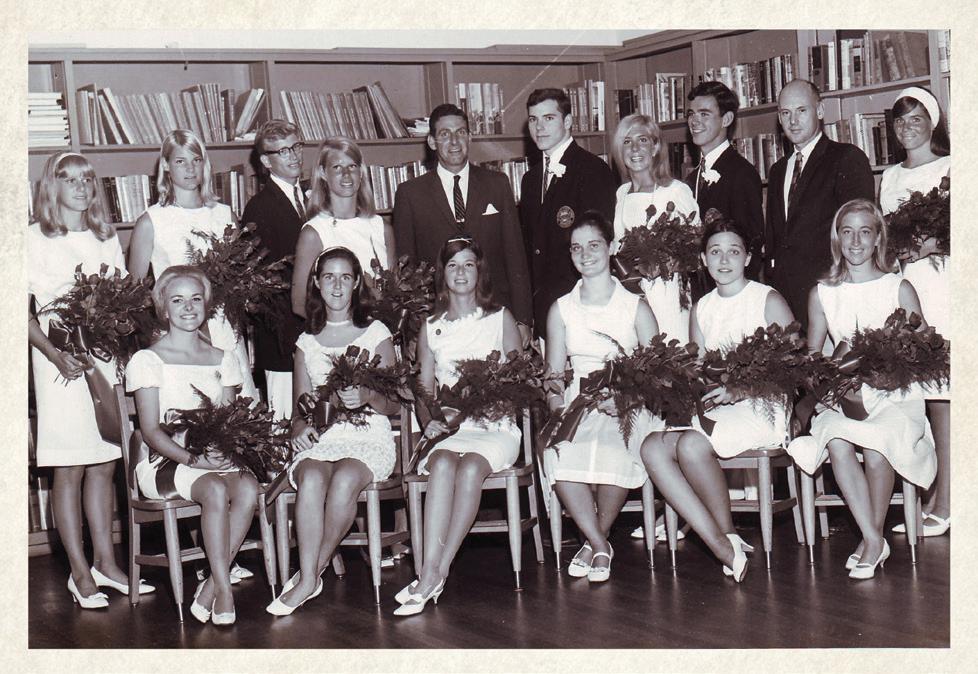
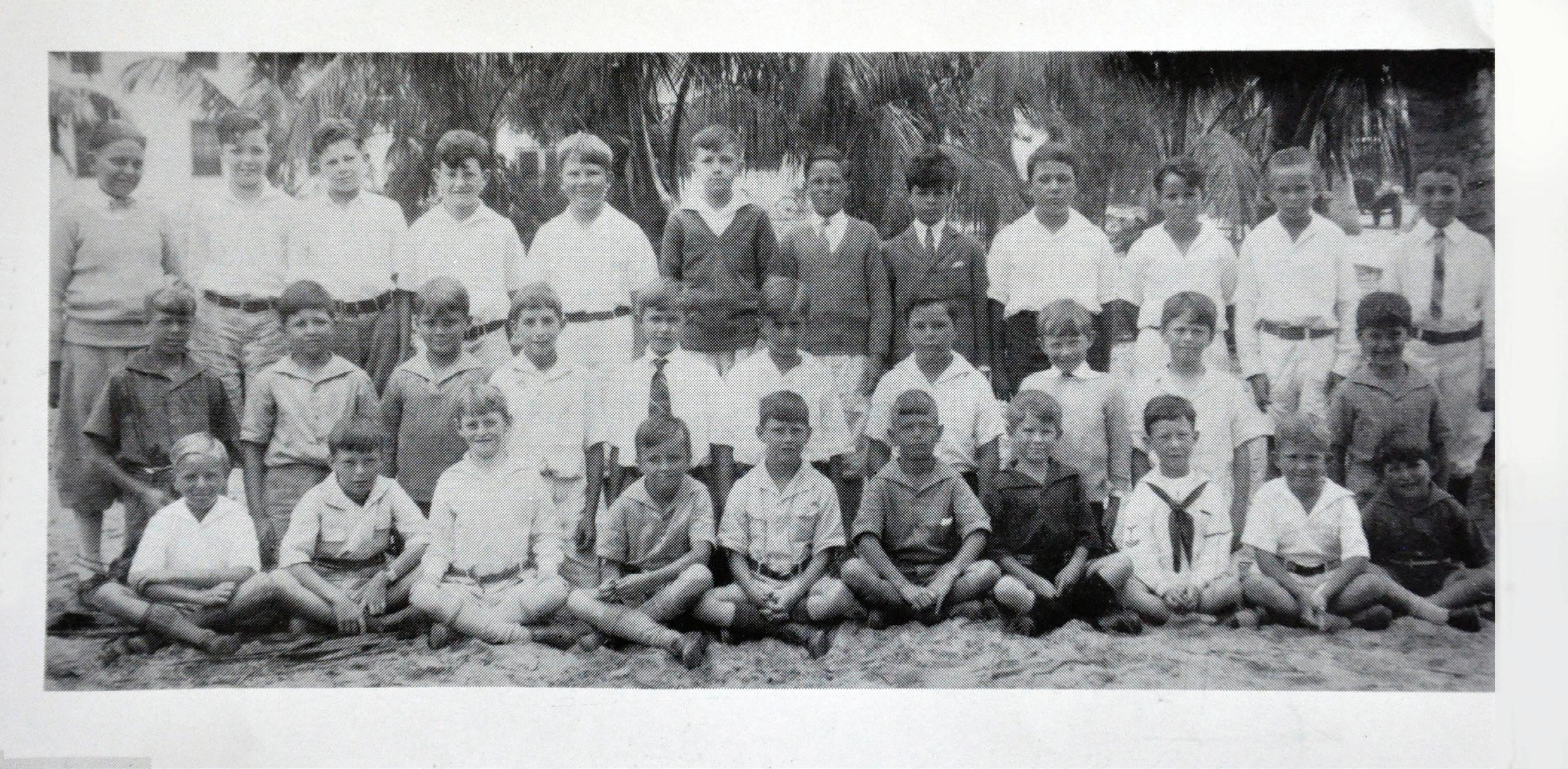

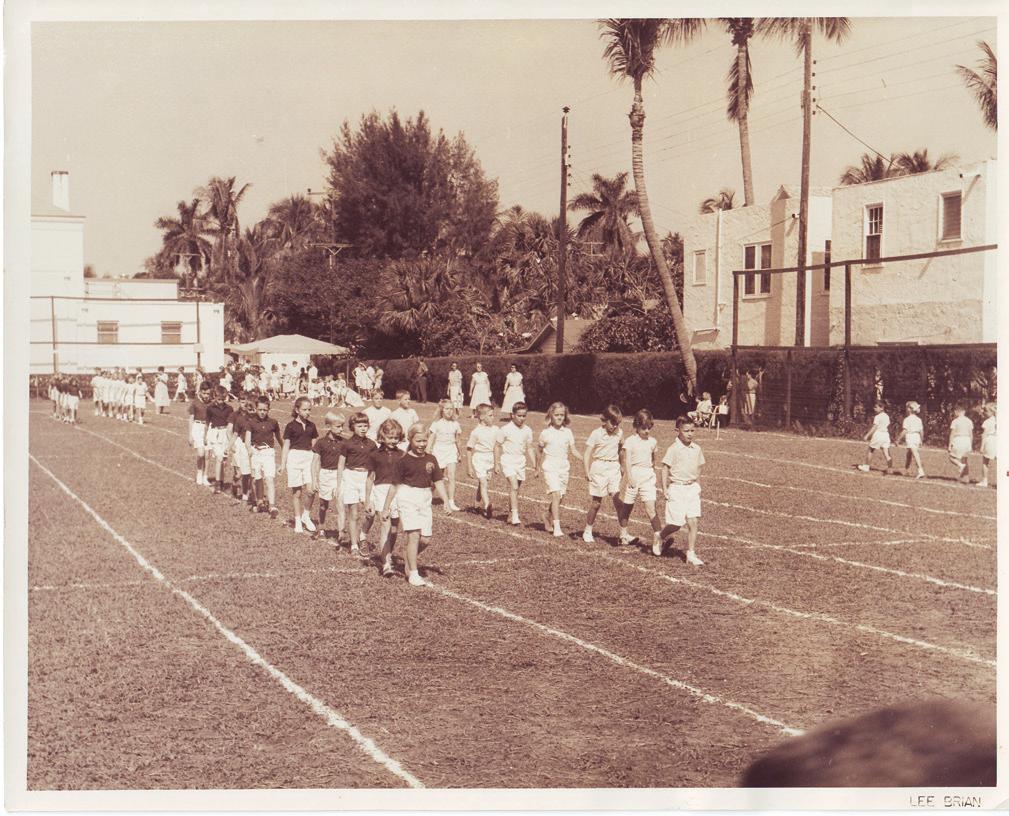
Palm Beach Day Academy’s Centennial Podcast
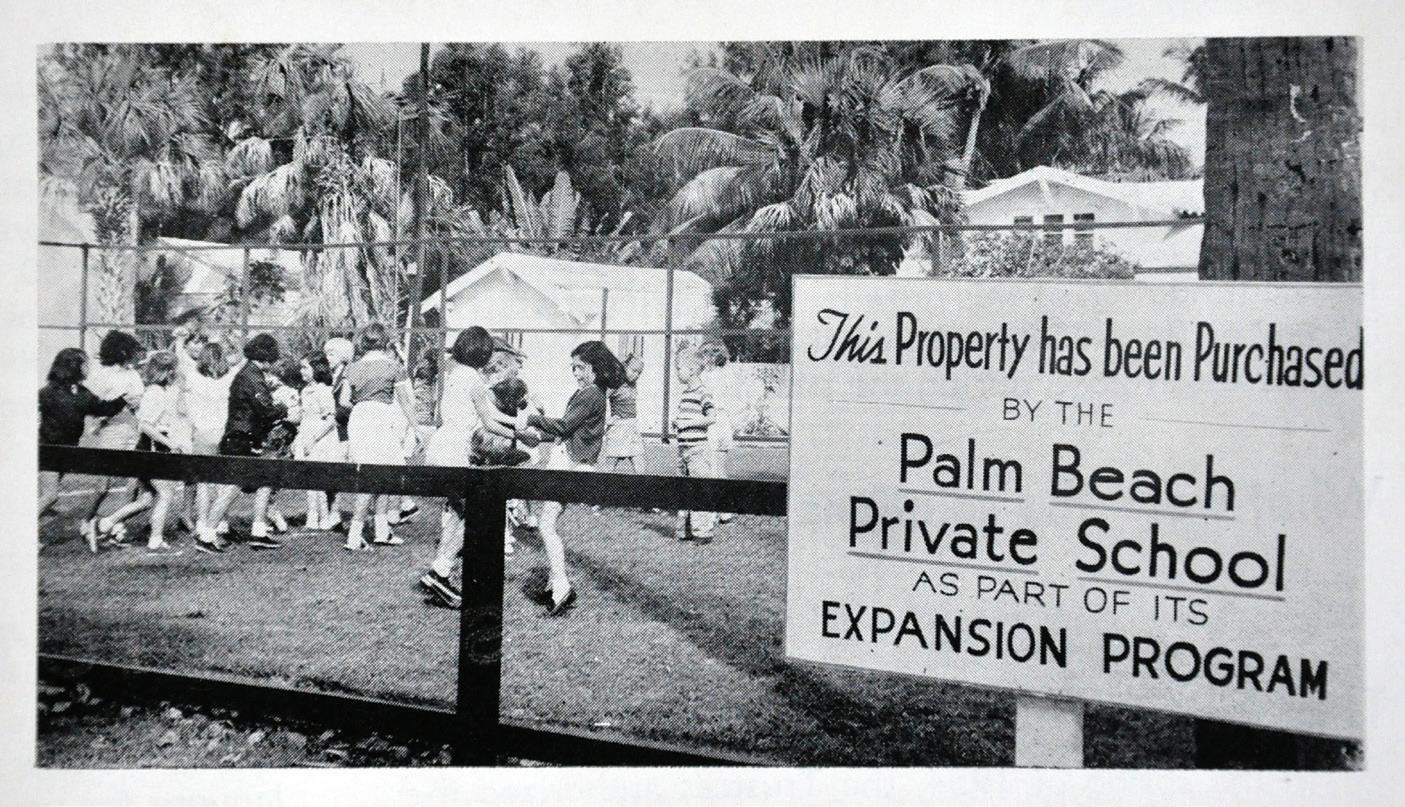
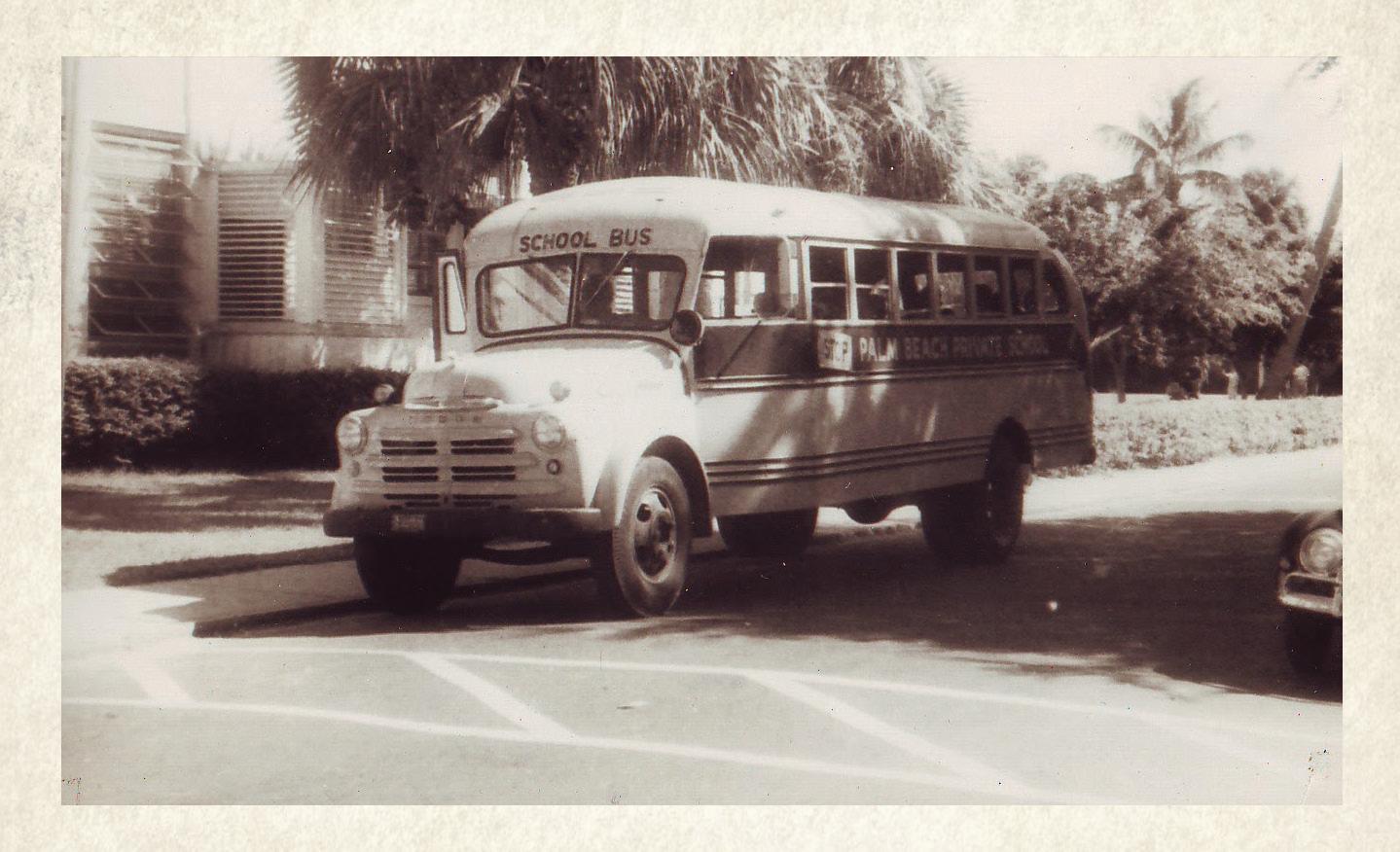
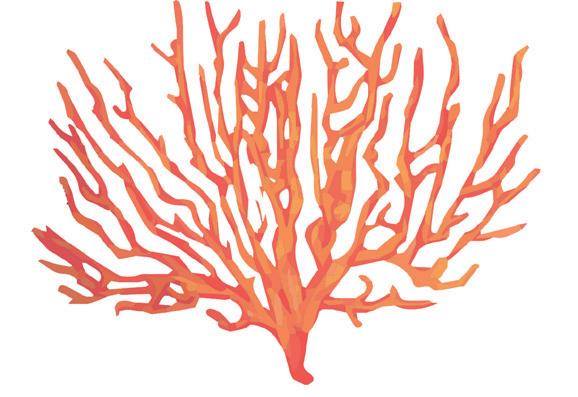
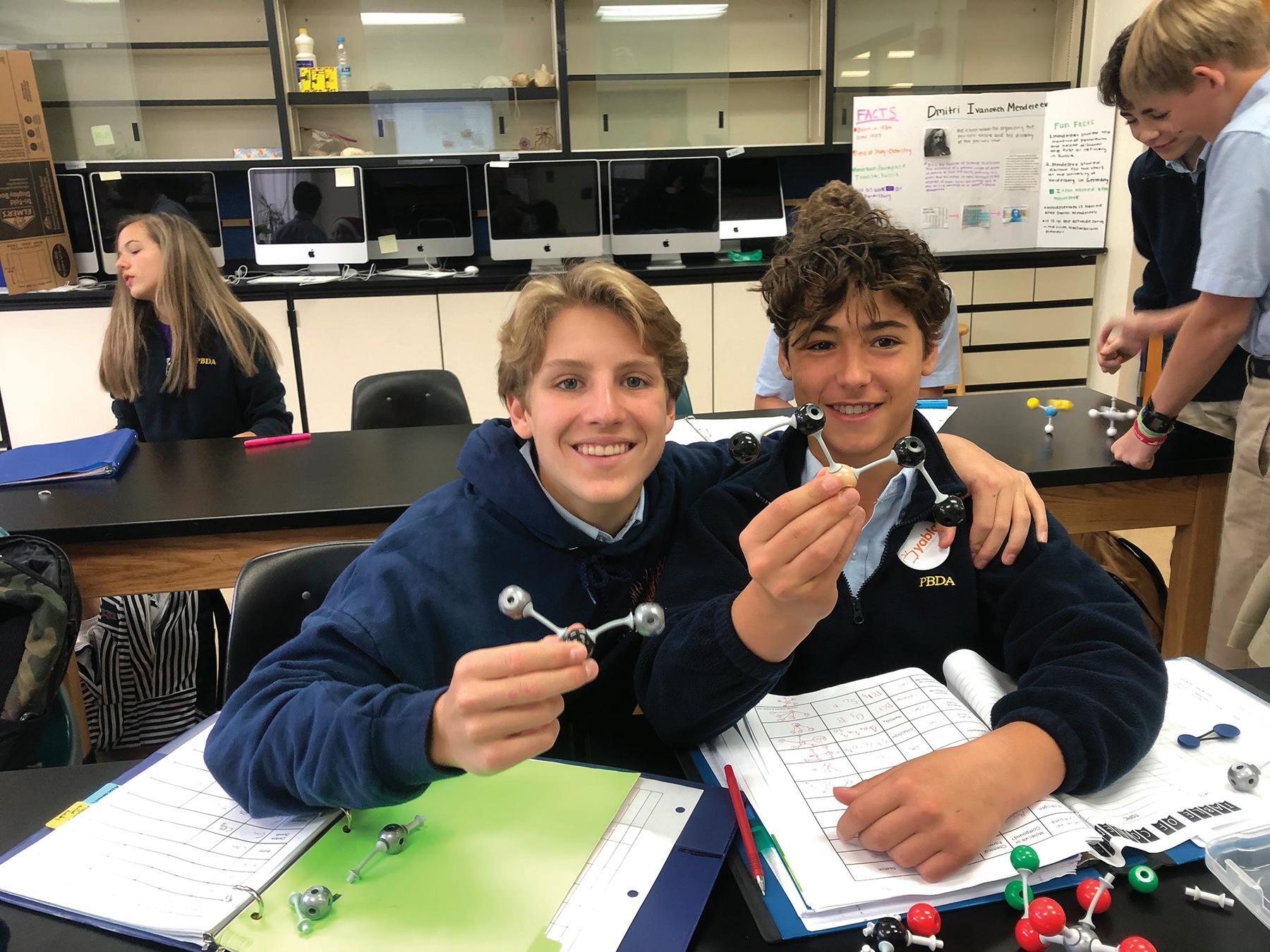
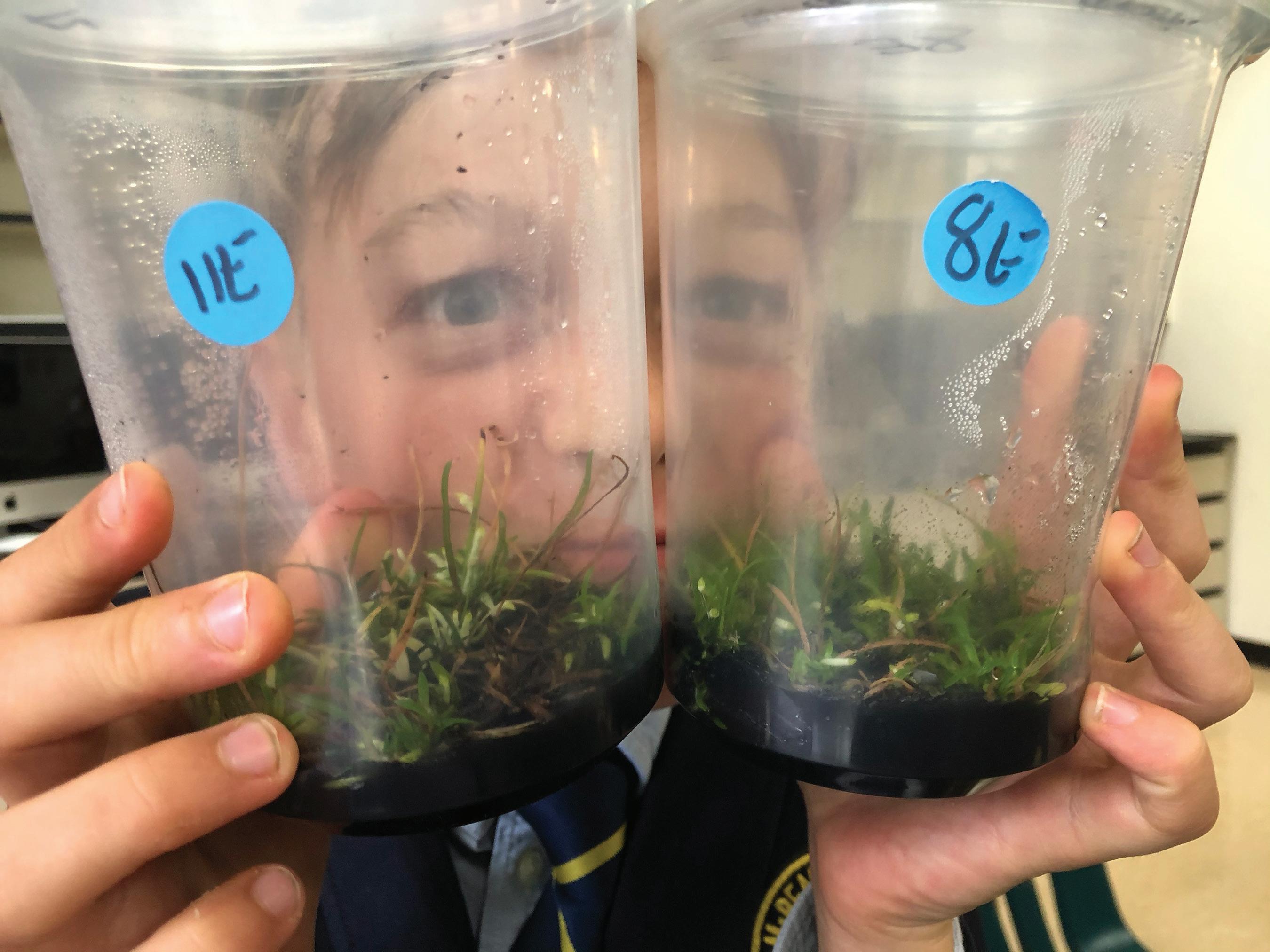
Erin Mitchell, Science Department Chair
PBDA’s Coral Project, which started as an Eighth and Ninth Grade initiative, has branched out to reach all grades and has expanded to include additional environmental research vital to Florida’s future. Through partnerships with community and national organizations like the Reef Institute, MANG, FAU’s Pine Jog, Community Greening, LOX Farms, and more, PBDA students have had the chance to explore additional ecosystems and better understand how each is interconnected. In addition, the Coral Project continues to bring in guest speakers, like 4Ocean and Zack Rago, co-star of the award-winning Netflix documentary “Chasing Coral,” to speak to the larger school community.
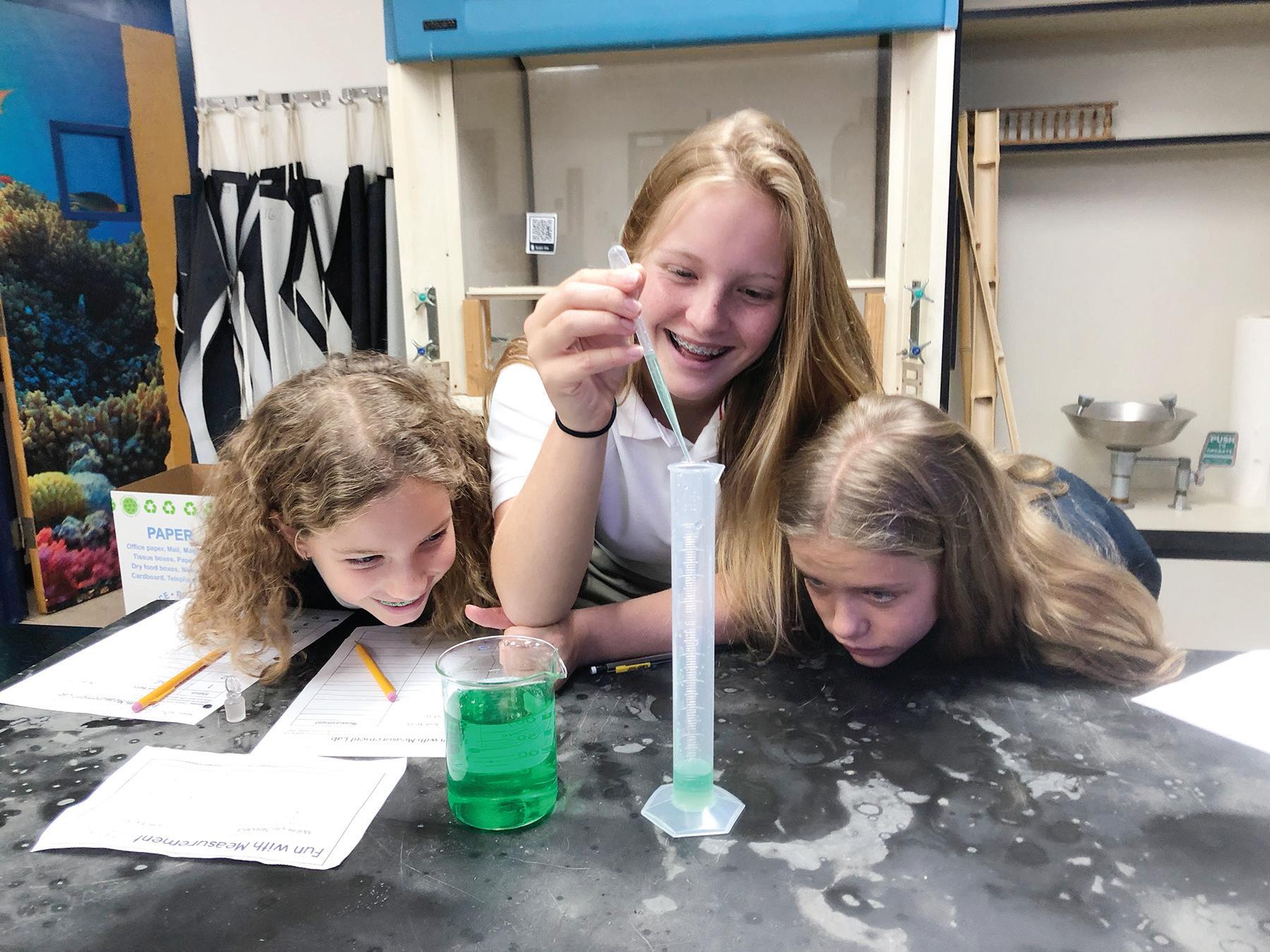
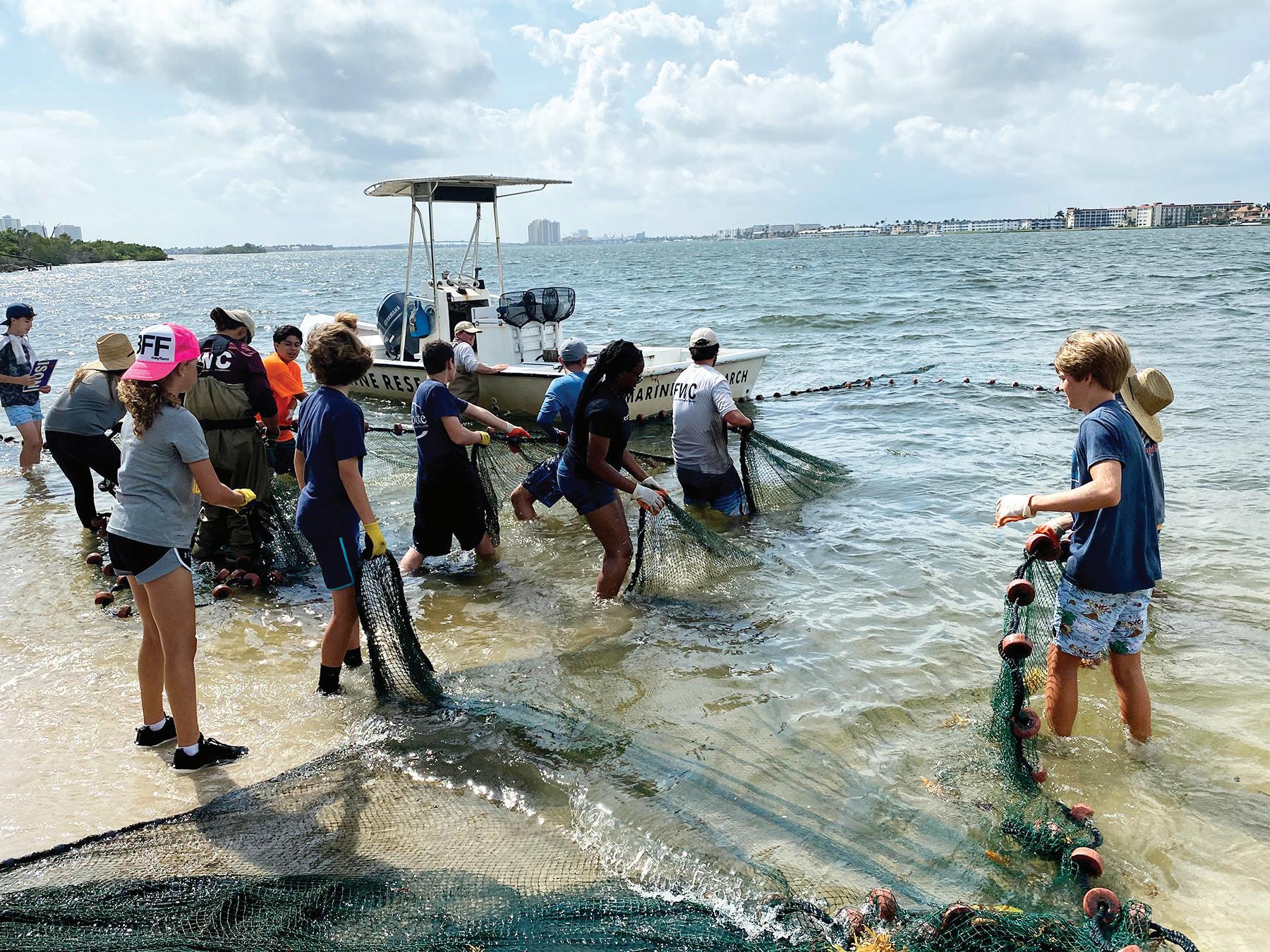
Preserving and Restoring our Local
Environment: A Closer Look at PBDA’s work in the Lake Worth Lagoon
Our 8th grade students made us proud on Wednesday, February 26. They participated in real-world research with local scientists to monitor the effectiveness of the oldest restoration project in the Lake Worth Lagoon at Munyon Island. Their teamwork, effort, and scientific skills were amazing to witness. They had a great time and are now analyzing the data they collected in order to submit their findings to FWC, the Florida Fish and Wildlife Conservation Commission. In March, our 8th and 9th graders had the opportunity to be part of the Tarpon Cove restoration project right in their own back yards. Palm Beach County identified degraded water quality and habitat in a 15 acre historic dredge hole in Tarpon Cove. The Tarpon Cove project was created to improve water quality, increase nursery areas, and improve habitat for fisheries, benthic organisms and wildlife. The dredge hole was filled and the restoration team is now in the process of creating a variety of natural habitats including salt marshes, seagrasses, mangrove swamps, tidal flats, nesting bird rookeries and oyster beds. With MANG and ERM (Environmental Resources Management), the students set out by boat to help develop the newly created island. Through their team work, determination and environmental stewardship, they were able to plant 900 one-gallon mangroves, 1,600 mangrove propagules and 4,000 Spartina grass plugs. You can find Tarpon Cove in the Lake Worth Lagoon just south of the Lower Campus and adjacent to the El Cid neighborhood. Be sure to take note of these new islands as you pass by on Flagler Drive. They are a permanent reminder that concerned citizens, like our students, can contribute to preserving and restoring Florida’s natural habitats. PBDA students will continue to work with MANG and ERM to monitor the health of this restoration project for years to come. experiences such as the Drift Card Citizen Scientist Experiment with the Angari Foundation, and has forced the cancellation of our Ninth Grade trip to the Island School, we are still able to stay connected with the local community. The Reef Institute is holding virtual classes for PBDA and the 8th and 9th graders had two NOAA Scientists present their work on coral reef conservation. Our coral tanks continue to thrive and we are already brainstorming our experimental design projects and new adventures out in the field.
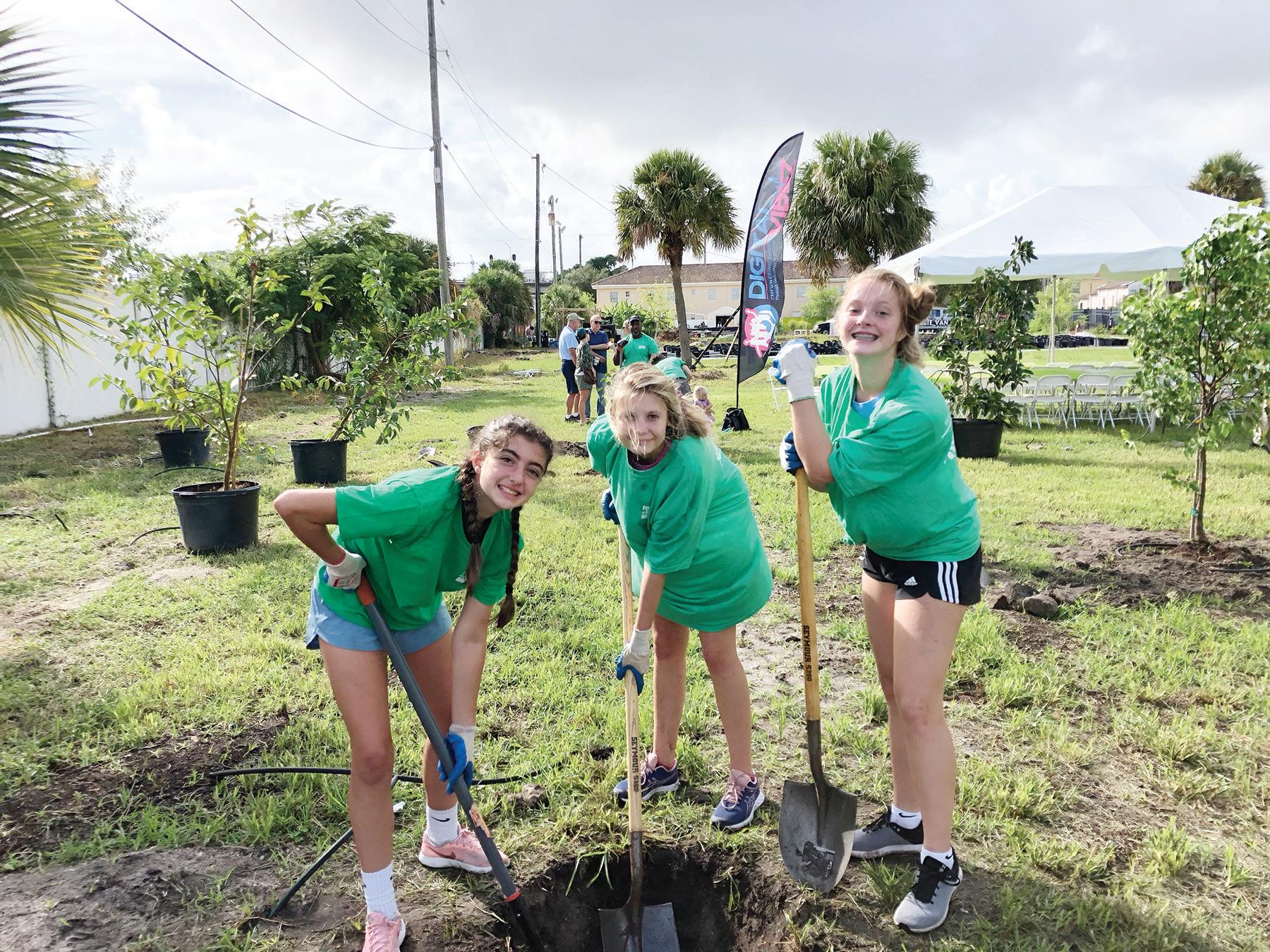
Lower Campus
We have developed a strong partnership with Florida Atlantic University Pine Jog, and have created unique programs for each grade level. Kindergarten, first and second graders participated in the Teaching Empathy Through Nature Program, conducted by FAU Pine Jog, and the third graders ventured to Pine Jog for a hands-on experience in the field. The Reef Institute conducts lessons focusing on The Coral Project in first through third grades and maintains the Lower Campus salt water tank right outside the library and Innovation Lab.
A Special Thanks
Palm Beach Day Academy has received two generous grants from the Annette Urso Rickel Foundation, allowing us to update our campuses to include marine science spaces and to partner with world-class environmental science organizations. We are grateful to the Rickel Foundation whose generosity and funding are making learning come alive!

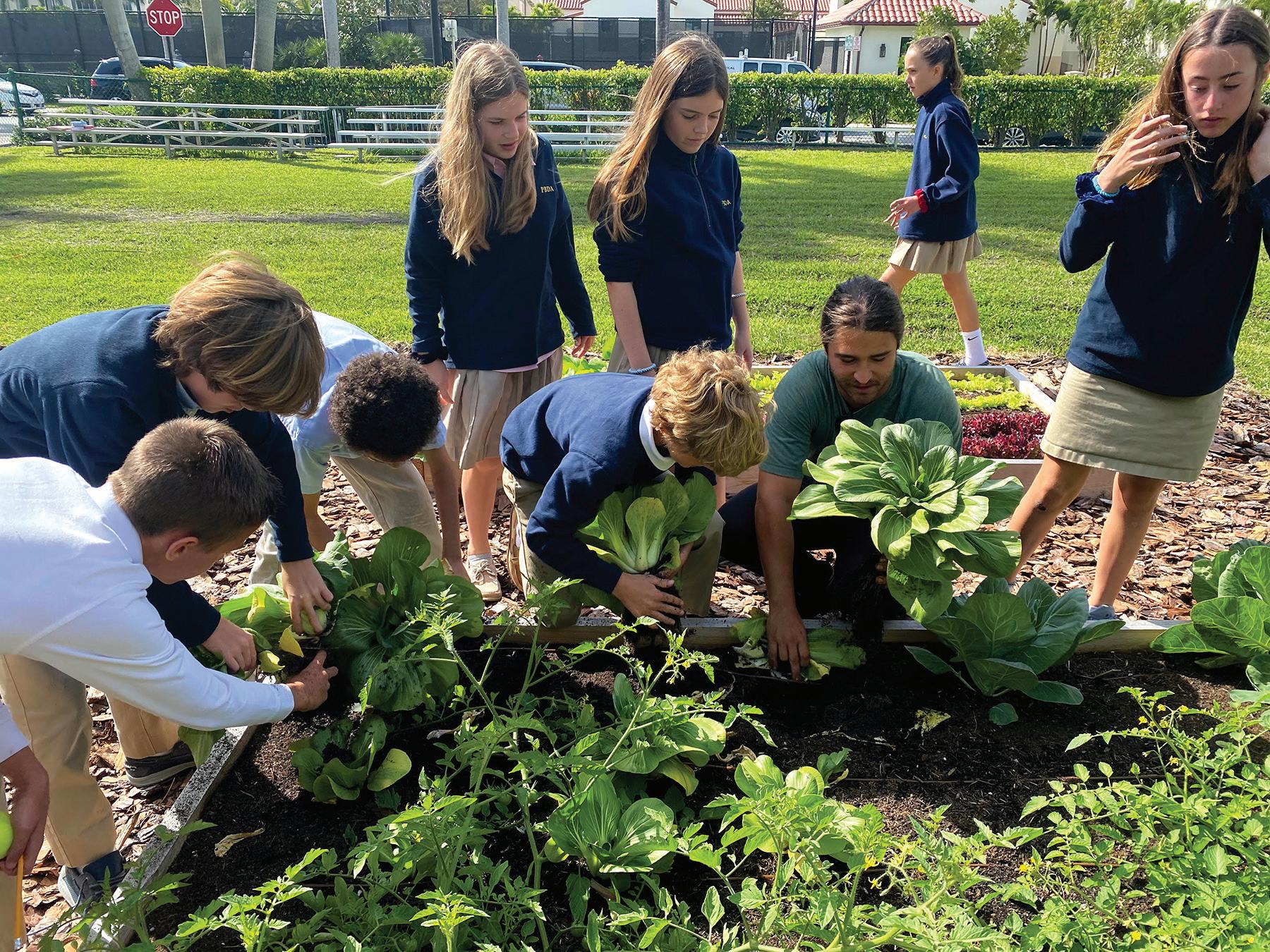
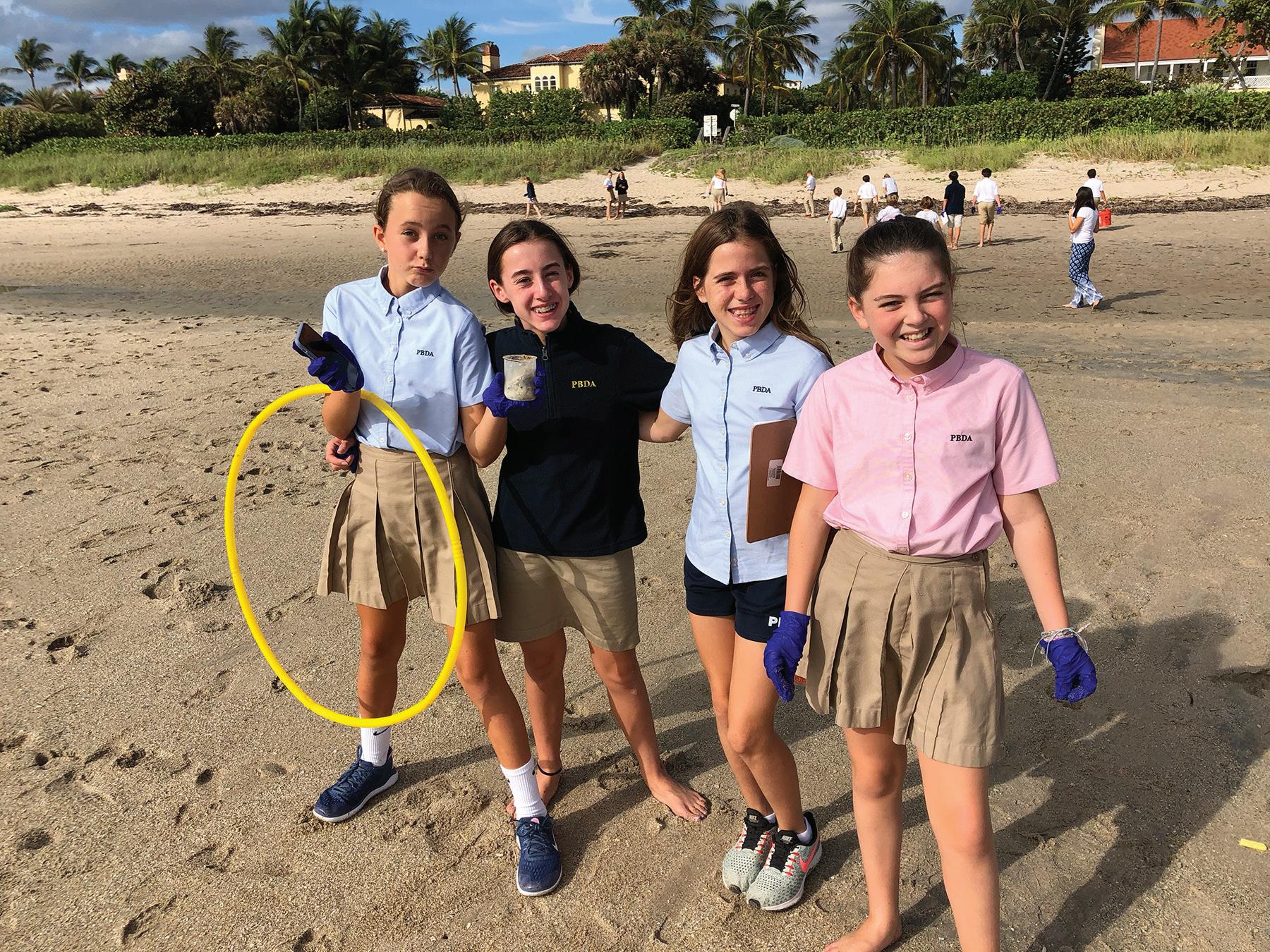
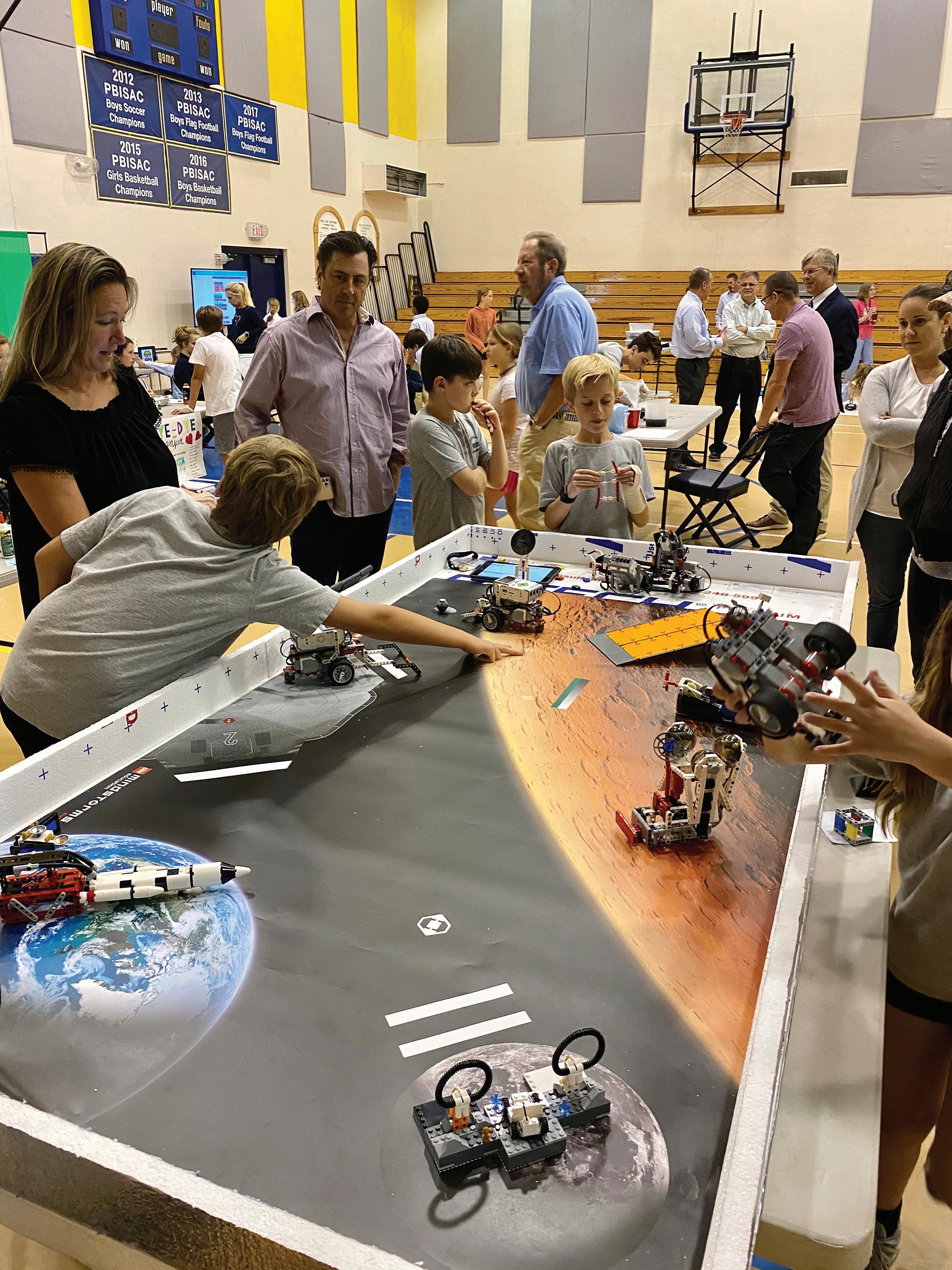
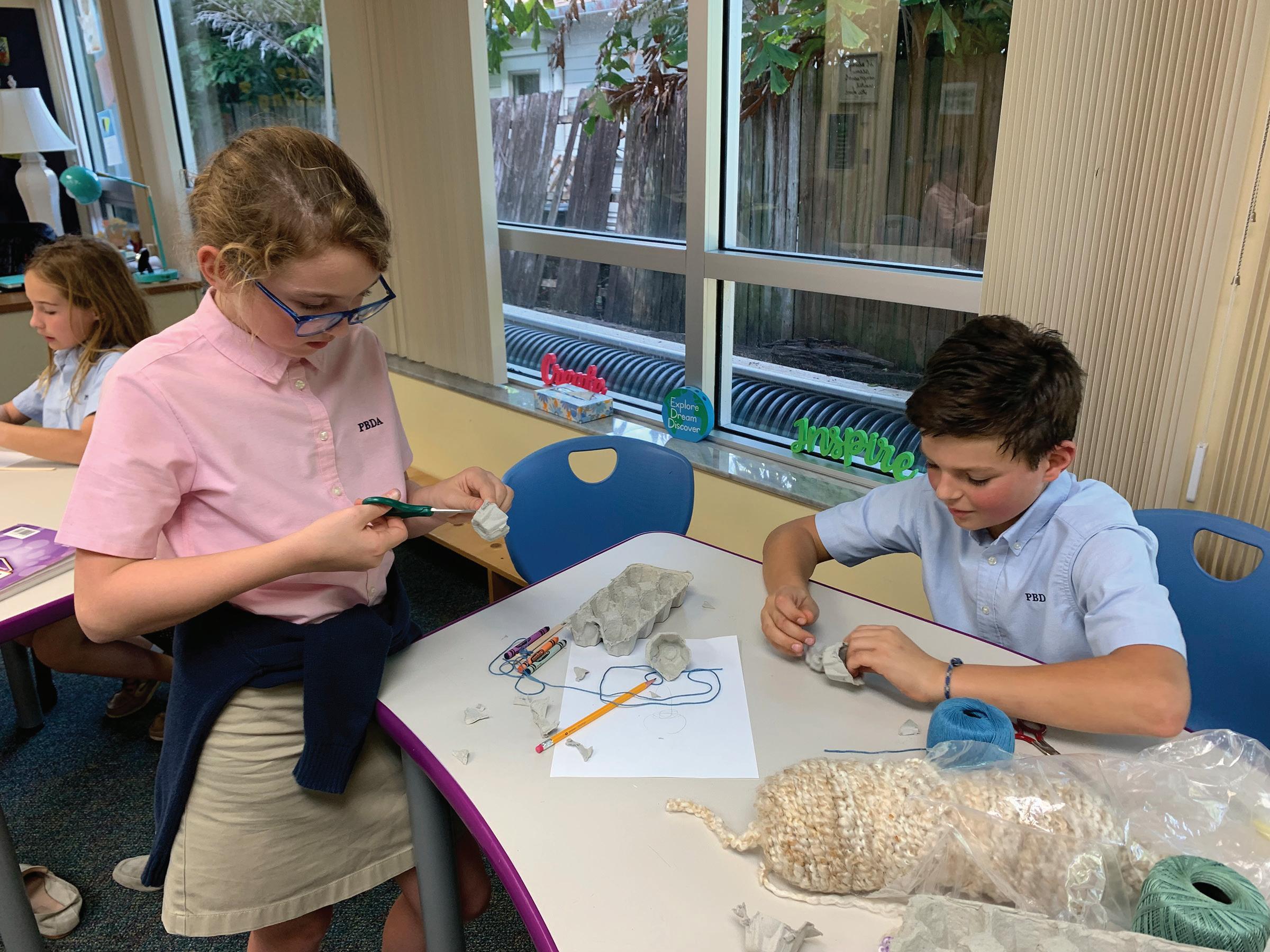
S.T.E.A.M. Innovation
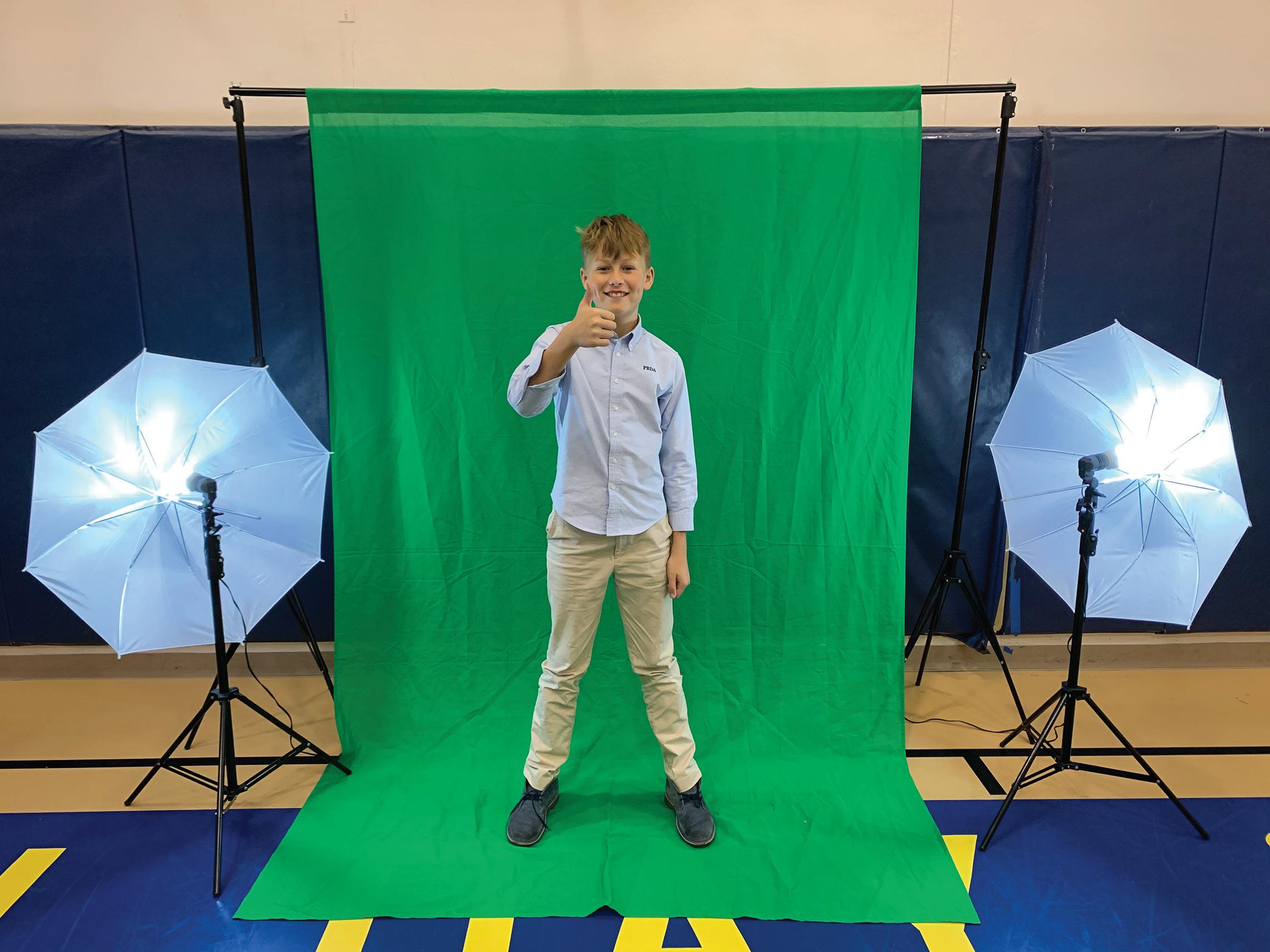
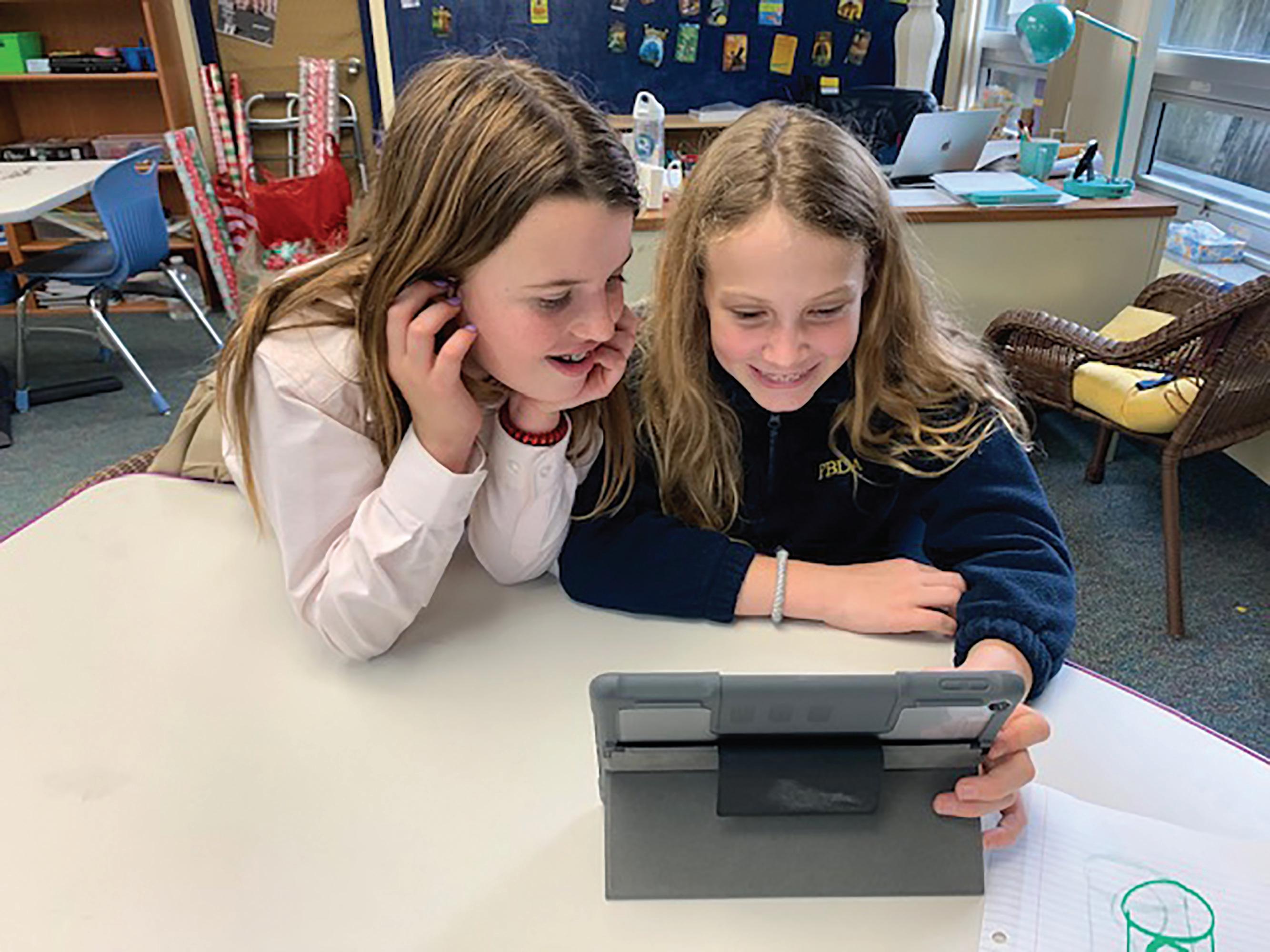
For nearly a century, Palm Beach Day Academy students and teachers have worked together to maximize each student’s mastery of knowledge and skills. For much of that Century, knowledge of math, history, science and literature combined with the skills to communicate confidently about those topics were the hallmarks of an excellent education. But, along the way the pace of change accelerated, making it necessary for students to add the cultivation of an adaptable and creative mindset to those fundamental skills. More than ever, PBDA is preparing students for a world of opportunities that don’t even exist today. Creativity and adaptability will be essential.
The Upper Campus Innovation classes focus on exactly those skills. Wendy Bieneman and Christi Chane have designed their 4th and 5th Grade classes to allow the students to generate their own plans to solve problems that interest them. The projects begin with the teachers presenting suggestions for things the students can create, often connecting the theme to topics they are learning in other classes. Once the students begin to understand the possibilities the theme allows they are free to design their own creations or solutions. Failure is a frequent assistant to the teachers. Impulsive students learn that the planning phase is more valuable than they originally thought. Dominant team members learn that less assertive members have great ideas, too. As hard as it might be, students learn to abandon their own favorite idea when a better one is presented. And, everybody learns that the errors in any trial and error process are simply guardrails on the road to success – sometimes.
One project that captured the imaginations of 4th Graders was the task of creating lego models of a Florida animal. The challenge was to give those models at least one moving part. Completing the project required the students to design a model that looked like the animal and then use lego motors and their own program code to create the movement. Once the students understood the goal, Mrs. Beineman stepped back to let the teams work out each aspect. Structural failures, program glitches, and mechanical breakdowns followed. But, something was learned at each step. Adjustments were made. Improvements were invented. Programming was refined. What might look chaotic in a math or English class, is pure learning in the Innovation lab. Everyone is involved, wrapping their minds around the physical realities of the structure and the details of programmed directions.
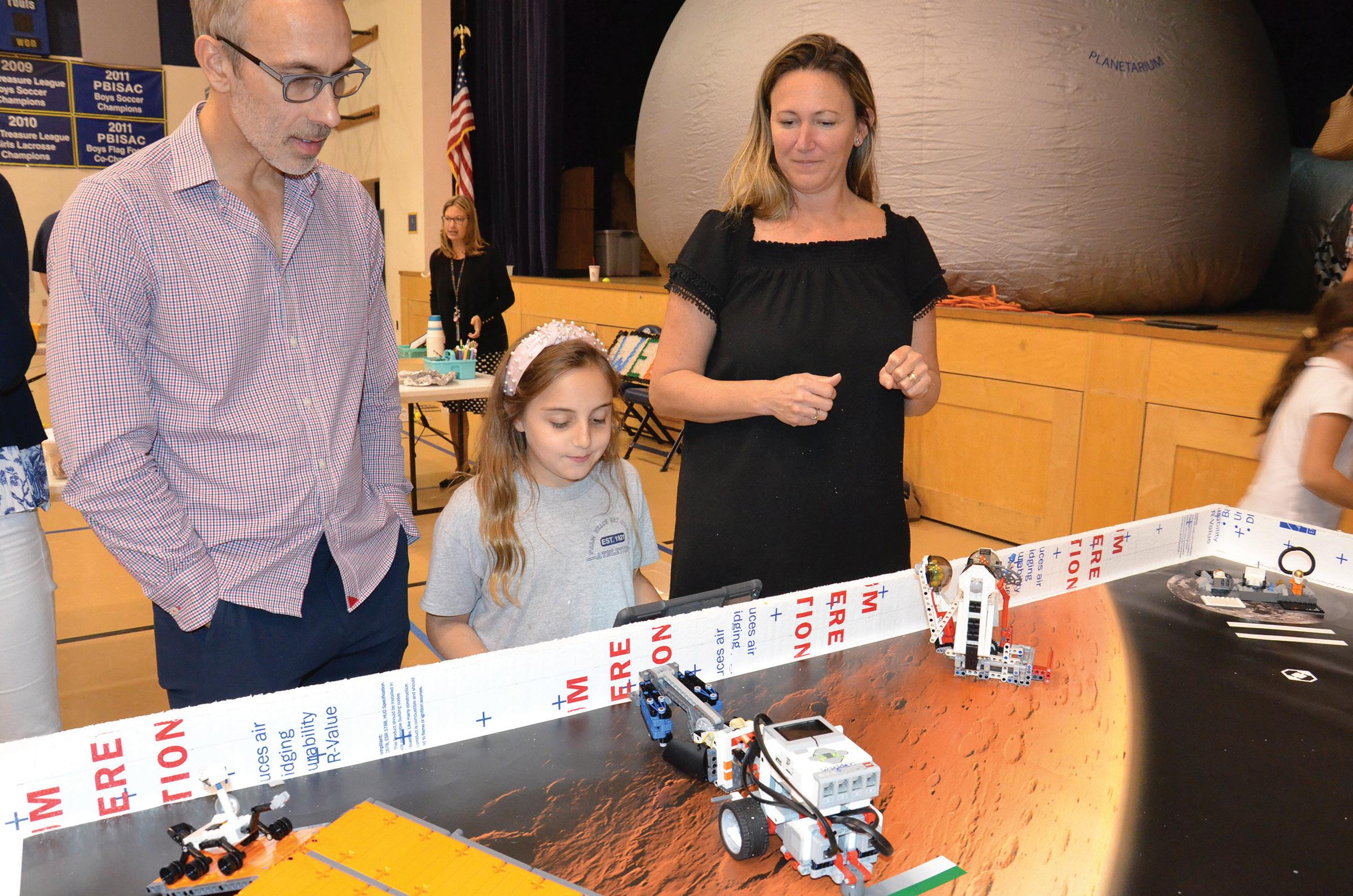
One of Mrs. Chane’s projects with 5th Graders involved showcasing their work from their reading class unit on Greek mythology. In reading, the students designed and created shields for Greek gods and goddesses in preparation for the Banquet of the Gods. The innovation class learned to create a short video presentation of each shield and use QR codes to allow anyone with a smartphone to learn more about Greek mythology. Organizing information into an interesting presentation and delivering that to others electronically is a powerful communication skill that these students are sure to use for a lifetime.
Perhaps one of the most important lessons that gets taught in the Innovation Lab is that it’s possible for anyone who is interested to contribute to finding solutions to problems. As it has to be, a certain amount of the school day is spent learning the right answers that are already known by others. Math problems have answers. Historical events have dates and grammar has rules that educated people know. Knowledge is the foundation that allows innovation. We believe students who can combine their store of knowledge with the creativity and adaptability encouraged in their innovation classes, will be able to participate in the search for new solutions.
